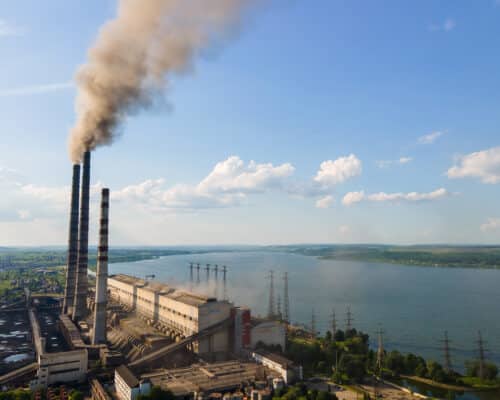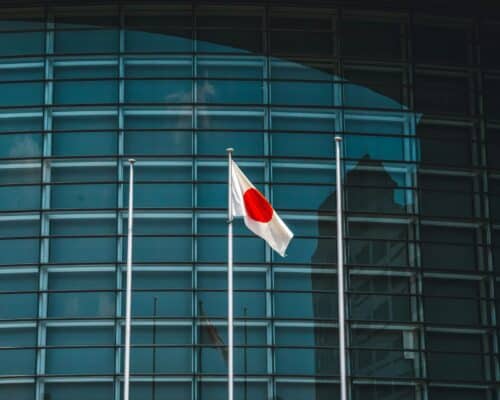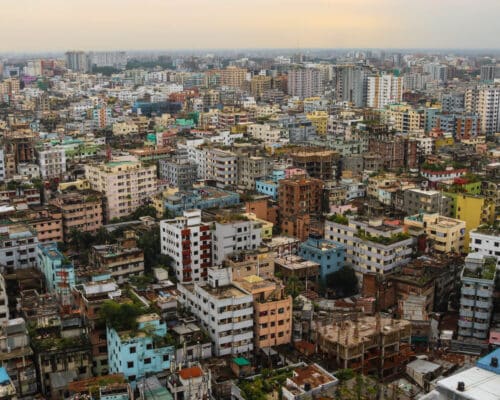Tokyo Olympics is Putting Sustainability First and Promoting Net-Zero Goals
19 July 2021 – by Eric Koons
The International Olympic Committee (IOC) recently made several major announcements regarding its push towards carbon neutrality. The announcements come just before the Tokyo 2021 games and are captured in a remark made by HSH Prince Albert II of Monaco, Chair of the IOC Sustainability and Legacy Commission.
“The IOC’s ambitious commitment to reduce its carbon emissions in line with the Paris Agreement is a clear testament to how seriously the IOC addresses the climate crisis and offers a powerful example of how sport can contribute to the global efforts.”
The International Olympic Committee and its 2030 targets
To reach the Paris Agreement goals, the IOC targets a 45% reduction in greenhouse gas emissions by 2030. After 2030, they will continue to reduce their carbon footprint by offsetting more than 100% of their emissions, mainly through the Olympic Forest Project. This is a part of the UN’s Great Green Wall initiative.

The Tokyo Olympics, pioneers in “Green Games”
The Great Green Wall is an initiative to plant an area of forest across North Africa. (ft.com)The Tokyo Olympics is shaping up to be an example of the IOC’s commitments and may well go down in history as the first truly ‘green’ games. (Read our previous article discussing “Is Tokyo 2021 the Environmental Turning Point for the Olympics?”)
Sustainability Goals for the Tokyo 2021 Olympic Games
The Tokyo Olympics (previously 2020) developed a sustainability plan and framework between 2016 and 2018. The plan set a series of goals for the games, including:
- 100% of electricity is from renewable sources.
- 99% of procured goods are reused or recycled.
- 65% of waste created will be reused or recycled.
- Actively working towards zero carbon.
Of these, ‘towards zero carbon’ is the least well-defined. However, it represents the sentiment held by the Tokyo Olympic Games and the IOC: net-zero carbon is on the horizon.
Achieving 100% Renewable Electricity for the Tokyo Games
Sourcing enough renewable energy for the Tokyo Olympics is no small task. Olympic officials estimate that close to 80,000 people from overseas will attend the games, plus several thousand more will travel internally within the country. This number calls for the energy requirements of a small city.
So far, the Tokyo Olympics sustainability committee has entered an agreement with ENEOS, which will supply the required renewable energy. Solar PV and biomass will generate power in the Fukushima Prefecture.

Sourcing Recycled Materials for the Tokyo Olympics
Several initiatives have been put into place to meet the target of 99% recycled materials. A few of the most prolific examples include:
- Relay Torches – Recycled aluminum sourced from temporary housing built in the wake of the 2011 Tohoku earthquake and tsunami.
- Olympic Torchbearer Uniforms – Recycled plastic bottles.
- Olympic Medals – Recycled metals from electronics.
- Podiums – Recycled plastic containers collected via public donation.
Fossil-Fuel-Free Transportation
Two ways of tackling the carbon impact of transportation are by using fossil-fuel-free vehicles and promoting public transportation.
Toyota, a key sponsor of the games, will supply 100 hydrogen fuel cell buses and 500 hydrogen cars to the event. In addition, battery electric vehicles (BEVs) and hybrid vehicles will be used to bolster Tokyo’s current public transportation system.

A Country Wide Carbon Offset Program
The Tokyo Olympics sustainability committee has developed a robust carbon offset programme built around promoting carbon reductions across the country. The Tokyo Metropolitan government and Saitama Prefecture were the ones to launch the program. These provide local businesses, organizations, and citizens with incentives to reduce their emissions and generate carbon offset credits. (You can take a deeper look at the success of Tokyo 2021’s Carbon Offset Programme in our dedicated analytical piece.)
Monitoring the Progress of Tokyo 2021
The Tokyo Olympics have committed to a system of regular reporting to ensure transparency. This reporting is in the form of a series of ‘sustainability reports.’ The most recent sustainability report is the “Sustainability Pre-Games Report,” released in April of 2020.
The Tokyo Games and its Key Green Points:
Overall, the progress listed in the report is very positive, and a few key points include:
- An estimated 280,000 tonnes of CO2 will be reduced from the game’s carbon footprint.
- 37,540 trees have been conserved or planted.
- 5,000 medals have been made with recycled components.

The Influence of Tokyo 2021 on Net-Zero Pledges
The Tokyo Olympics represents an opportunity on the world stage to showcase real initiatives in sustainability. From carbon offsets to renewable energy efforts and low emissions vehicles, the Tokyo Olympics appear to be placing sustainability at the forefront of its goals.
The Tokyo Olympics and its audience
The Olympic games are also a symbol for much greater and broader efforts towards net-zero carbon emissions. Both the IOC and Japan have recently made significant pledges to align with the Paris Climate Agreement. Even more importantly, the Olympic Games is one of the few events where countries, people, and athletes come together on such a massive scale – the 2014 Sochi Olympics had an audience of 2.1 billion people. It is a platform to reach billions of people and shows that we, as a world, can make sustainability a priority.
The Tokyo Olympics and COP26
Furthermore, the timing is almost perfect, with the 26th UN Climate Change Conference of the Parties meeting (COP26) taking place in November. The COP26 is touted as an instrument for generational change.
The Olympic Games, an Example in Japan for Moving Forward
Let’s hope the Tokyo Olympics continues to deliver on its promises and sends a loud message to countries, businesses, and individuals that an energy transition is not only necessary but can be achieved relatively quickly and at scale.
![]()
by Eric Koons
Eric is a passionate environmental advocate that believes renewable energy is a key piece in meeting the world’s growing energy demands. He received an environmental science degree from the University of California and has worked to promote environmentally and socially sustainable practices since. Eric’s expertise extends across the environmental field, yet he maintains a strong focus on renewable energy. His work has been featured by leading environmental organizations, such as World Resources Institute and Hitachi ABB Power Grids.
Read more




